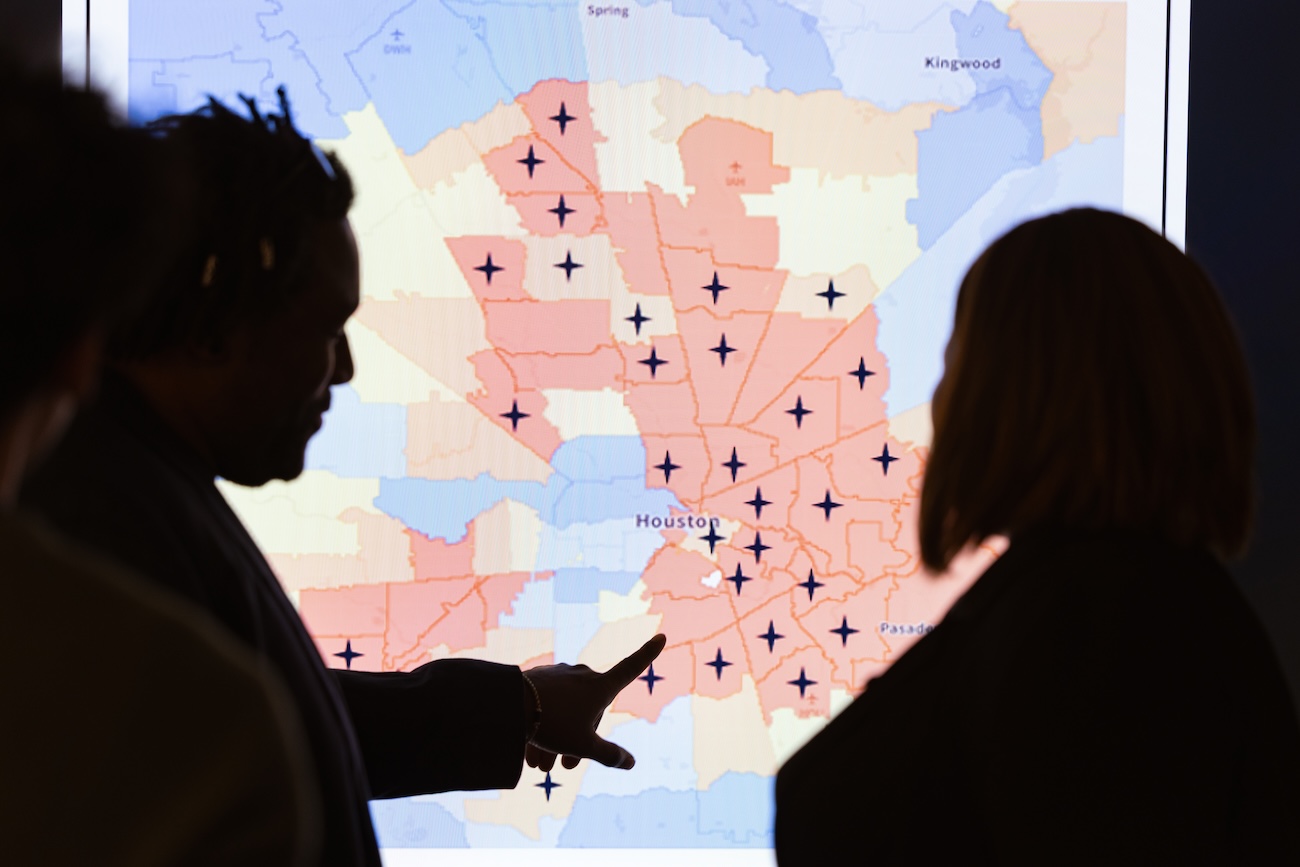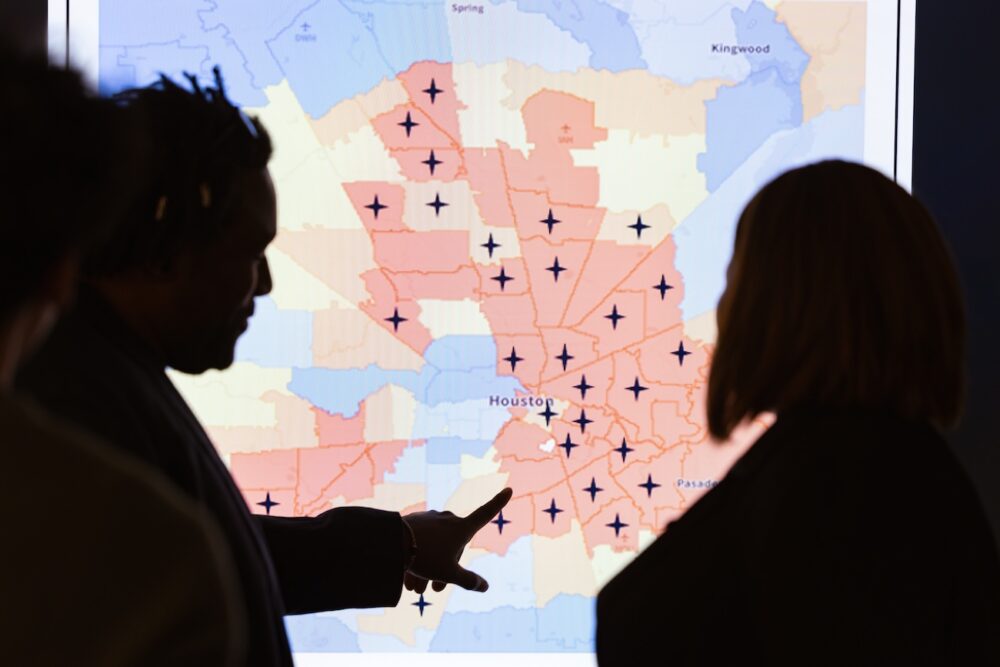University of Houston
Damien Kelly, left, and Chakema Carmack, who authored a study about mental health care deserts in the Houston area, point to a map.
Despite a growing demand for mental health care services among low-income communities, many people in Houston’s economically disadvantaged neighborhoods lack nearby access to those services.
New research from the University of Houston maps out “mental health deserts” in the city, finding that 39 out of 96 zip codes in the Houston area lack mental health care providers. Those areas include the Fifth Ward, Kashmere Gardens and Sunnyside, which are predominantly Black communities.
The report, published last month in “Frontiers in Public Health,” also found that a majority of those zip codes are considered “distressed” by the U.S. Census Bureau, based on factors like unemployment, educational attainment and poverty.
Chakema Carmack, senior author and assistant professor at UH’s College of Education, said the findings reveal major disparities in mental health care access across socioeconomic groups.
“These communities want mental health care, but where do they get it?” Carmack said. “If I want to refer you to someone, and they’re 20 miles away and you already have unstable transportation, that creates a big barrier. Meanwhile, the individual is still suffering. Meanwhile, the whole community is still suffering.”
Carmack and Damien Kelly, formerly of UH‘s HEALTH Center for Addictions Research and Cancer Prevention and lead author of the paper, based their research off the concept of food deserts – areas with limited access to fresh, healthy food. Kelly said that after having conversations with people living in these communities, a consistent theme emerged – people wanted mental health care but didn’t know how or where to go to get it.
He noticed that a lot of the barriers people face in obtaining fresh food also applied to accessing mental health care.
“We’re looking at lack of transportation, things happening in these low-income neighborhoods where there’s economic disinvestment, things of that nature,” Kelly said. “So we were looking at, well, does this happen in places where people might need mental health as well? And we’re finding that a lot of these same patterns are occurring, also for a lot of the same reasons.”
Though the paper maps out these “deserts” only in the Houston area, Kelly said he hopes the framework can be used to look at other areas that have systemic barriers to mental health care.
“We’re talking about using this maybe as a road map for policy makers, community members who are seeing a need for these services and they’re not finding them,” Kelly said. “I guarantee you there are other parts of the United States, especially in rural communities, where people don’t have access to the care that they need.”
The data backs that up. In Texas, 248 of the state’s 254 counties are considered by the federal government to be mental health professional shortage areas.
Kelly and Carmack said the next step is to continue digging into the data and working with local officials to better understand disparities, along with coming up with policy recommendations to address the disparities. They’ll also be partnering with the office of Harris County Precinct 4 Commissioner Lesley Briones to create more detailed maps about where needs are greatest and how to address them.
Carmack said their work is just beginning.
“The overarching idea of that is that where you live should not have dependency on whether you’re able to get mental health care, that those two things should not be dependent,” she said. “We need mental health care for all. This is just a very basic starter study, just to show, ‘Look at this problem.’ We need to go deeper. We need to see what we can do about it.”
Disclosure: Houston Public Media is licensed to the University of Houston System. The university does not play a role in Houston Public Media’s editorial decisions. Read our statement of ethics and standards here.

